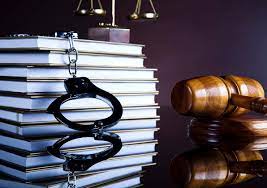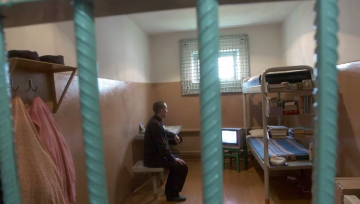I constantly strive to develop and acquire new knowledge, my experience and additional education confirm this.
Criminal proceedings
A criminal case is a set of actions of pre-trial investigation bodies, the prosecutor's office and the court, related to the application of criminal legislation to the specific fact of committing a crime. The criminal case includes all procedural documents and evidence collected during the investigation and consideration of the case.
Here are the main stages of the criminal case:
Opening of a criminal case.
It is initiated on the basis of the discovery of a crime or a complaint from citizens or organizations. The police or other authorized body decides whether there are sufficient grounds to initiate criminal proceedings.
Pre-trial investigation.
Includes collection of evidence, interrogation of witnesses, conducting examinations and other investigative actions. The goal is to find out the circumstances of the case and identify the persons responsible for the crime.- Indictment.
If sufficient evidence has been gathered during the investigation, a formal charge is filed against the suspect. - Judicial proceedings.
The case is transferred to the court, where the collected information, testimony, and evidence are considered, and the court makes a decision on the guilt or innocence of the accused. - Court verdict.
If a person is found guilty, the court determines the punishment according to the law. If the accused is acquitted, the case is closed.
Closing the criminal case
The closure of criminal proceedings can be initiated on the basis of several clearly defined criteria, which are established in the criminal procedural legislation.The importance of these foundations lies in the fact that they contribute not only to legal certainty, but also to the protection of human rights within the framework of criminal justice.
A criminal case can be closed at any of these stages if it turns out that no crime was committed, there is no evidence of guilt, or if other circumstances prevent the continuation of the investigation or trial.
Article 284 of the Criminal Procedure Code of Ukraine establishes rules and conditions for closing criminal proceedings. Here are the main points of this article:
- Grounds for closing criminal proceedings:
Absence of a criminal offense event.
- Absence of a criminal offense in the act.
- Lack of sufficient evidence of guilt for the court.
- The person who committed the crime has not been identified and the statute of limitations has expired (except for particularly serious cases).
- The person against whom actions were taken has died, except in cases where rehabilitation is ongoing.
- There is already a verdict or court order on the same charge.
- The victim or his representative refused the accusation in private, except in cases of domestic violence.
- In relation to the crime, consent was not obtained from the state that extradited the person.
In case of reaching a tax compromise under Article 212 of the Civil Code.
- Closure of proceedings by the court
- In connection with the release of a person from responsibility.
- If the prosecutor refused to support the state prosecution.
- When reaching a tax compromise in cases related to Article 212 of the Criminal Code.
- Proceedings regarding a legal entity
It is closed in the absence of grounds for the application of criminal legal measures.
- The court or the prosecutor can make relevant decisions that can be appealed.
Resolution on closure
- Accepted by the investigator, inquirer or prosecutor and may be appealed.
- These provisions reflect the procedural mechanisms that allow to ensure the legality and reasonableness of the closure of criminal cases, as well as the protection of the rights of the participants in the proceedings.
Legal assistance in closing a criminal case
- Criminal proceedings are a complex legal process that requires in-depth knowledge of legislation and the rules of its application. The role of a lawyer in such a process cannot be overestimated, since the right legal strategy and professional support are key to protecting the client's rights and interests, in particular, when it comes to closing a criminal case.
Professional legal assistance plays a key role in the process of closing criminal proceedings. Qualified lawyers ensure the protection of the rights and interests of their clients, analyze the legal aspects of each specific case and act as initiators of filing motions to close the case when there are legal grounds for this.
Lawyers perform several important tasks during the consideration of criminal cases. A lawyer must thoroughly examine all case materials, including evidence, testimony, and procedural documents, to assess their appropriateness and legality of collection. On the basis of the analysis, the lawyer determines the presence of legal grounds for closing the case, such as deficiencies in the collection of evidence, lack of composition of the crime, violation of procedural terms, etc.
The lawyer prepares and submits a motion to close the case, providing arguments in favor of his client and relying on the relevant norms of the law.
At court hearings, the attorney makes speeches, debates, and defenses aimed at demonstrating that there are no grounds for continuing the criminal prosecution of his client.The lawyer provides the client with comprehensive advice on his rights and obligations, possible risks and consequences at each stage of the criminal process.
Legal assistance in criminal cases not only contributes to the legality and justice of the decision, but also plays a decisive role in the protection of the constitutional rights of the individual. A professional lawyer can provide adequate protection against unjustified criminal prosecution, minimize risks and provide confidence in the resolution of the case.
Legal assistance in release from prison
Release from prison can be a complex and lengthy process that requires in-depth knowledge of legislation and legal practice. In such a situation, qualified legal assistance is indispensable. A lawyer will help in the following aspects, legal assistance in getting out of prison:
- Analysis of the case: Assessment of the legality of the verdict, detection of violations in the process of investigation and trial.
- Verdict appeal: Preparation of appeals and cassation appeals, representation in higher courts.
Parole: Drawing up and submitting a petition for parole, preparation of necessary documents, participation in court hearings regarding the case.
- Case review: Initiation of case review in connection with newly discovered circumstances, preparation of relevant motions.
- Preparation of documents for amnesty or pardon: Drafting and submission of petitions for amnesty or pardon to the relevant authorities.
- Protection of the prisoner's rights: Control over the observance of the prisoner's rights during his stay in prison, filing complaints about illegal actions of the institution's administration.
- Consultations and family support: Provision of legal advice to relatives of the prisoner, assistance in collecting the necessary documents and evidence.
Legal aid significantly increases the chances of a successful release from prison and ensures that the prisoner's rights are respected at all stages of the process.
Conclusion
Qualified legal assistance is key in the processes of closing criminal cases and release from prison. A lawyer or advocate plays an important role in ensuring the legality and protection of the client's rights, which significantly increases the chances of a successful outcome.
When closing a criminal case, a lawyer helps with the analysis of grounds for closing, preparation and submission of petitions, ensures proper representation of the client's interests in court, and also appeals against illegal actions and decisions of investigative bodies.

































